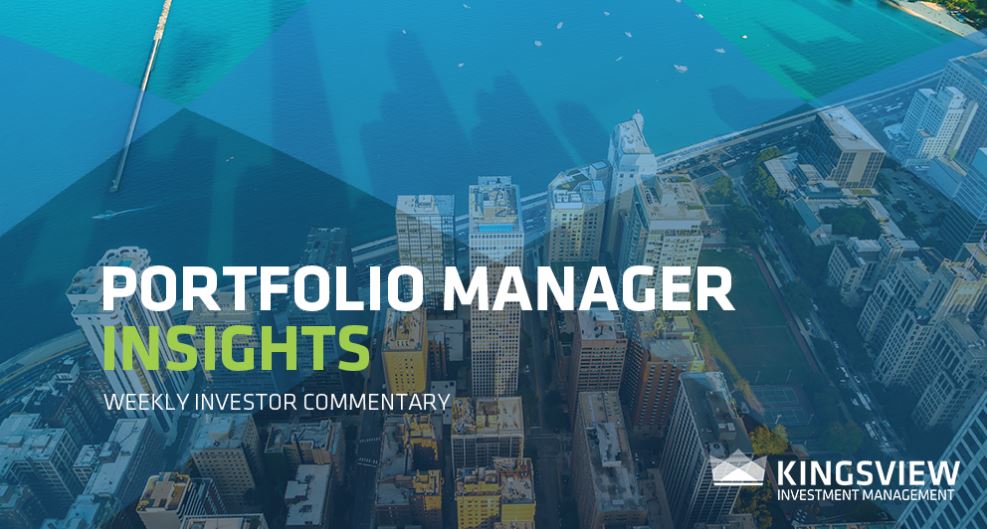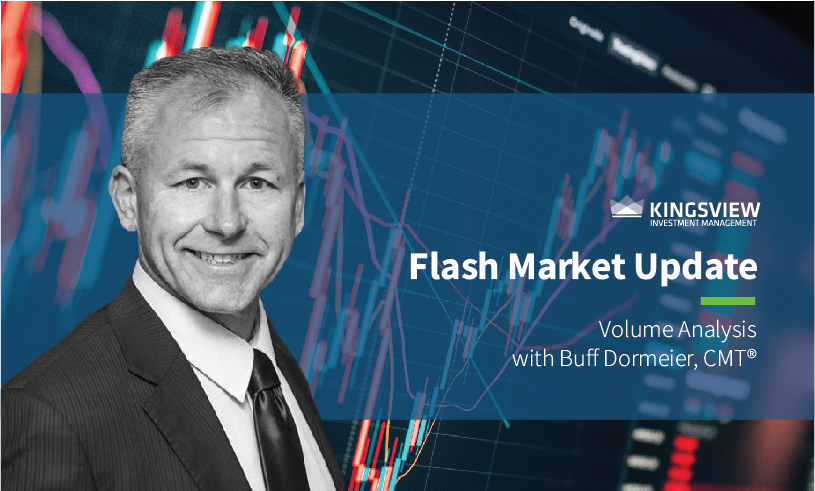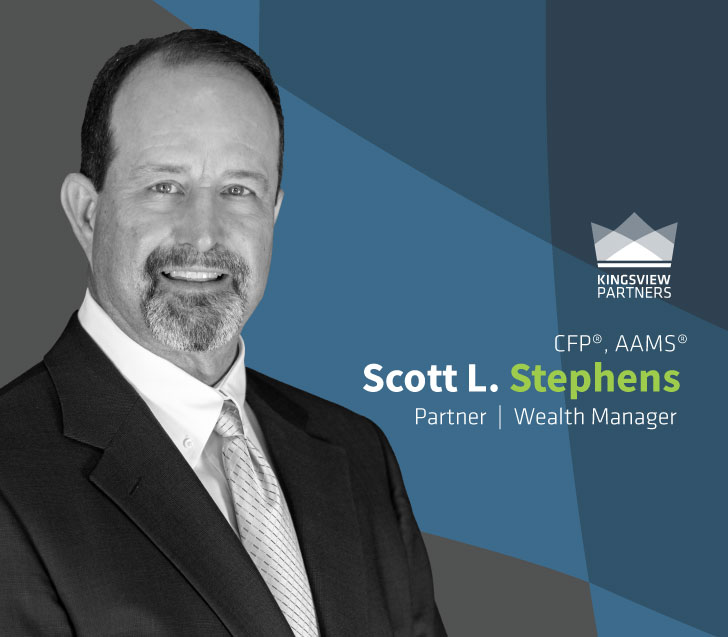CIO Scott Martin Interviewed on Fox News 5.5.22
Kingsview CIO Scott Martin discusses recent Fed statements, a negative GDP and consumer & investor confidence.
Program: Mornings with Maria
Date: 5/5/2022
Station: Fox Business News
Time: 6:00AM
MARIA BARTIROMO: And it’s time for the word on Wall Street. Top investors watching your money. Joining me right now is Kingview Wealth Management chief investment officer and Fox News contributor Scott Martin, Strategic Wealth Partners President and CEO Mark Tepper and UBS Financial Services private wealth advisor Ali Macartney. Great to see everybody this Thursday morning. Thank you so much for being here. Scottie, let me kick things off with you after this big move from the Federal Reserve. Biggest move in rates in two decades, half a percentage point higher. What are your thoughts on what we heard from the Fed? I know you said that inflation is going to cool down in the next few months. You’re not saying it’s transitory, are you?
SCOTT MARTIN: I wouldn’t dare unless I want to get kicked off the show and probably off the earth. Which is funny because what a day yesterday was. I mean, and I agree with a lot of things that have been said so far on the lovely show today. Maria is especially what dagen was noting about the Fed said a lot of weird things yesterday, if you ask me. I mean, this is coming from a fed chairman that has already been wrong and so wrong and I think continues to stick his neck out there and say things that just don’t make sense. I mean, when you talk about the economy being so strong, being able to withstand more rate hikes, including the one we had yesterday, yet we have negative GDP. Now we have the productivity numbers. You mentioned we have retail sales that are in jeopardy, consumer confidence, investor confidence as well. And then you also have the fact that the Fed is dovish at heart. And that’s really the thing that I think a lot of investors are forgetting about. We have a mid-term election coming up. We have a Fed chairman that is appointed by President Biden on his second term and one that has shown that in times of crisis, the Fed will back off, the Fed will step back. And you talked about this with the gentleman from Oxbow this morning leading off the show, Maria. I think that’s really the risk here is that the Fed talks tough, says that the economy is great, says that inflation is maybe not transitory, but maybe moving on to another country or another planet hopefully and says we don’t have to do as many rate hikes as the market thinks.
And that will support stock prices here, at least for the temporary term, until the economy really shows itself to be weaker than expected. And therefore, stock prices come down to reasonable valuations again.
BARTIROMO: Well, look, it’s not, you know, wrong to think that we could be seeing peaks in inflation. A lot of people believe that. I don’t know if it’s transient or temporary or what, but that we’ve seen the worst. Mark, Fed Chair Jay Powell said that he’s not predicting a recession and that he sees a strong economy. Now we’re seeing a contraction in the first quarter. We got that number last week. But the debate is if the Fed is actually being too optimistic here, what do you think?
MARK TEPPER: Yes. And Jay Powell is way too dovish. So if you go back to 1950, 75% of the times where you have a negative GDP print, you are in a recession. So for him to get up there and say the economy is strong, he’s he’s either lying or he just doesn’t know what he’s doing. And then for him to say that that he’s confident he can hike rates and avoid a recession, I think he’s out of his mind there, too. I mean, look, volatility is obviously back in the market. We’re now seeing stocks trade at greater than 1%. I think it’s happened 87% of trading days so far this year, which is a big shift from how stocks have been trading during the QE era, going all the way back to 2009. And look, you know, just like Scott said, I mean, look, I manage money. I should be incredibly happy that the market rallied 3% in the last hour or so yesterday. But look, I think that says something about how dovish the Fed is. I think we should have hiked 100 basis points yesterday. I know that’s way out of consensus. I was hoping the Fed would meet me in the middle. You know, I’m happy the market went up for myself and all my clients, but I don’t like when it goes up, only to crash even harder later on. And if we don’t beat the living crap out of inflation, we’re headed for a much longer and a much deeper recession than a lot of people believe. And yes, I manage money, but I’m also a small business owner. A lot of my clients are entrepreneurs, a lot of my friends own businesses. So while Wall Street cheered on this 3% rally yesterday, Main Street businesses are just getting pummeled by inflation and they want to see that become the number one concern of the Fed is fighting inflation and getting aggressive and doing it the right way.
BARTIROMO: Right. Well, one of the reasons for the rally was that he basically squashed the notion that we would see a 75 basis point move any time soon, saying that the board is not actively considering 75 basis points. But he did say that we’re likely going to see 50 basis points hikes in June and July. Ali, let me just say that the Bank of England this morning is raising interest rates, the B of E saying that it is expecting the economy in England to contract in 2023. You’ve got a war in Ukraine, Ali. You’ve got expectations that we’re going to see a recession in Europe before the US and maybe come to the US by 2023. How do you want to allocate capital in this environment?
ALI MCCARTNEY: All of that is true, Maria. And it is a terribly scary time to be an allocator of capital, to Mark’s point. However, I take a different view of a lot of the data. So I think the GDP print, although contraction, although indicating a contraction, was very much amplified by a record trade deficit. We see a lot of things to be positive about. And yesterday I think what you had was an acknowledgement that there is not an absolutely hawkish Fed, which everybody seemed to love. When you saw the rally. You saw growth names come back stronger as those are tied to interest rates. The things that I think you need to look for right now, you’re not not big moves, not big trades. You need to make sure that you still have commodities exposure. It is already gone. It’s had a tremendous year. Given all of the issues that we’re facing, we still see high single digit returns for this year. We still like energy. There are many, many, both structural and long term and idiosyncratic challenges, but that is going to keep the price up. We see demand over the next ten years continuing to grow into this energy transition, and we like health care because of both its defensive and growth like natures within it and its discount to how it’s trading. But I would say the thing that we are watching for the most to the points that have been made today is the inflation print next week looking at April inflation. That’s exactly right. Even bigger than the meeting we saw yesterday. And what I’m hearing from my CEO clients is that they have seen a number of weeks of flat costs and they are starting to get bullish and starting to make a lot of capital investments. And that’s what we need to avoid a recession.
BARTIROMO: That. That is the exact point to make. I totally agree, Ali. We’re going to get the CPI number out on Wednesday, May 11th. That’s going to be the focus for these markets. We’re running at eight and a half percent year over year. Do you expect, Ali, that we are going to see a lower number? Are there indications you’re saying there are leaks and conversation? Do people think it’s going to come in lower than that? Do they think that it’s actually peaking here, as Scotty said earlier?
MCCARTNEY: Yeah. Yeah. We expect and we hope that March is going to prove to be the peak that it either flattens or goes down month over month. And if we start to see that now, look, with all of the challenges we just talked about with energy, that’s always a wild card going forward. But as long as we talk about peak and the derivative of the derivatives, as long as that’s behind us, then business and individuals, big and small, can start to make capital allocation decisions which are going to add to the GDP of this country.
BARTIROMO: And by the way, before that, you’ve got several days of Fed speakers out, whether at graduations or giving giving speeches, Williams, Kashkari, Bostic, Bullard, Dailey, Waller, Mester, all out speaking. So we’re going to be talking about this inflation story going into the CPI on Wednesday. Great word on Wall Street, everybody. Thanks very much, Scott Martin, Ali McCartney, we will see you soon. And Mark Taper is sticking around. We’re so happy you are with us all morning long.



